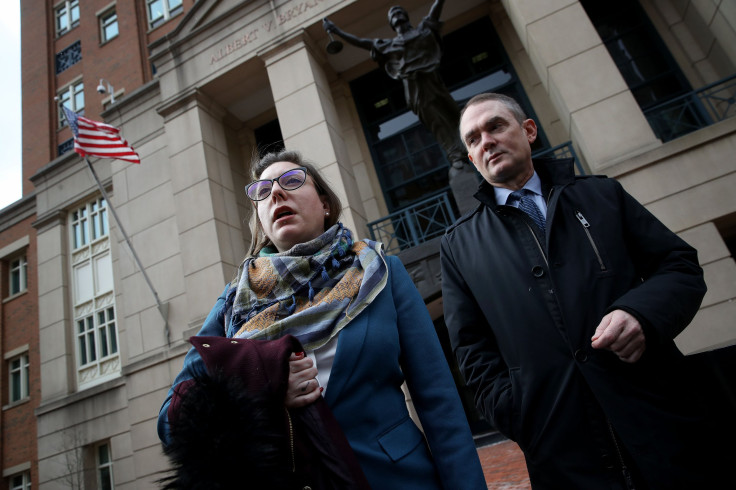Chelsea Manning Going Back To Jail? Whistle Blower Refuses To Testify In WikiLeaks Case

Chelsea Manning, a former U.S. Army intelligence analyst who was imprisoned for seven years after releasing classified information, including military and diplomatic documents, to WikiLeaks, was taken into custody on Friday after refusing to testify in front of a grand jury on a sealed case involving the website and its publisher and founder, Julian Assange.
U.S. District Judge Claude Hilton found Manning in contempt of court after Manning refused to answer questions posed by the grand jury. Manning will be detained until agreeing to testify or until the grand jury finishes its work, which could take up to 18 months.
Manning told the judge that she "will accept whatever you bring upon me."
Manning was subpoenaed to testify in front of the grand jury in January in the U.S. District Court in the Eastern District of Virginia for the sealed case, which inadvertently led to the discovery of a sealed indictment against Assange.
Manning said that she has been granted immunity for her testimony by prosecutors, which automatically eliminates her ability to elicit the Fifth Amendment in order to protect herself against self-incrimination.
She also said that she has told everything she knew at her court-martial and strongly disagrees with the secrecy swathing the grand jury process.
Manning was originally given a military sentence of 35 years in 2013 for leaking nearly 750,000 classified and unclassified documents that contained sensitive material to the website but served only seven, including time served while awaiting trial.
In 2017, President Barack Obama commuted her sentence. Since her release, Manning has toured as a speaker and anti-secrecy activist.
** Chelsea was taken into custody today for resisting a grand jury in the Eastern District of Virginia
— Chelsea E. Manning (@xychelsea) March 8, 2019
Chelsea provided the following statement: pic.twitter.com/tWjEOFyhYn
“I will not participate in a secret process that I morally object to, particularly one that has been used to entrap and persecute activists for protected political speech," Manning said in a statement soon after she was taken into custody.
Manning's attorney, Moira Meltzer-Cohen, has said that Manning might possibly appeal the ruling, calling it an "appealable order" and, at the same token, "an act of tremendous cruelty."
Rather than spend time in jail, Manning's lawyers have asked for her to be sent home due to complications over her gender-affirming medical care, though prosecuting attorney Tracy McCormick says that both the jail and U.S. marshals have told her that her medical needs can be met during incarceration.
The details over how Manning's medical treatment will be implemented at a detention center in Alexandria, Virginia, continue to remain elusive.
“Specific details about Ms. Manning’s confinement will not be made public due to security and privacy concerns,” Alexandria Sheriff Dana Lawhorne said in an official statement. “We will work closely with the U.S. Marshals to ensure her proper care while she remains at our facility.”
© Copyright IBTimes 2025. All rights reserved.





















